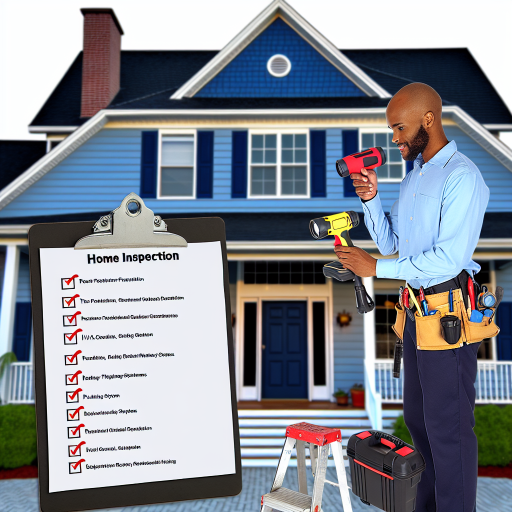Understanding the Market: Analyzing Comparable Sales
The Importance of Market Research
Market research helps you understand current pricing trends.
It allows you to make informed decisions when negotiating.
Additionally, understanding the market strengthens your bargaining power.
Identifying Comparable Properties
Comparable properties, or “comps,” are essential for accurate analysis.
Look for homes in similar neighborhoods with recent sales.
Focus on properties that match your home’s features and square footage.
Evaluating Sale Prices of Comps
Examine the sale prices of comparable properties closely.
Note any differences in condition or upgrades between homes.
Calculating the average price per square foot can provide clarity.
Considering Market Conditions
Market conditions significantly impact home prices.
Evaluate whether the market is a buyer’s or seller’s market.
In a buyer’s market, you may have more leverage during negotiations.
Gathering Additional Data
Utilize online resources to gather data on recent sales.
Local real estate agents can also provide valuable insights.
Attend open houses to see how similar properties are priced.
Analyzing Days on Market
Days on market can indicate a property’s demand level.
Properties that sell quickly often indicate strong interest.
If a home lingers on the market, it may suggest overpricing.
Leveraging Your Findings in Negotiations
Use your research to justify your offer price during negotiations.
Present your findings confidently to the seller or their agent.
Backing your offer with data demonstrates seriousness and preparation.
Setting Your Budget
Understanding Your Financial Situation
Before you start searching for a home, assess your financial situation.
Review your income, savings, and any additional sources of revenue.
Gather recent pay stubs and bank statements for accurate calculations.
This will provide a clear picture of your affordability.
Calculating Your Home Buying Budget
Your home buying budget must include various expenses.
Consider mortgage payments, property taxes, and insurance costs.
In addition, factor in maintenance and utility expenses.
These costs can add up quickly if overlooked.
Using a Mortgage Calculator
A mortgage calculator can help streamline your budgeting process.
Input your desired home price, down payment, and interest rate.
The calculator provides an estimate of monthly payments.
Use this information to make informed decisions.
Understanding Debt-to-Income Ratio
Your debt-to-income ratio is crucial for loan approval.
Calculate this by dividing your monthly debts by your monthly income.
Most lenders prefer a ratio below 43 percent.
Maintaining a lower ratio can enhance your mortgage options.
Setting a Realistic Budget
Having a realistic budget is essential to the home buying process.
Include a buffer for unexpected expenses in your budget.
Consult financial advisors or real estate experts for guidance.
They can provide insights tailored to your unique situation.
Considering Pre-Approval
Obtaining a mortgage pre-approval demonstrates seriousness to sellers.
This process helps identify your budget and purchasing power.
Moreover, sellers often view pre-approved buyers as more reliable.
This advantage can strengthen your negotiating position.
Building Rapport
Establishing Trust
Start by being genuine in your approach.
This helps to build a foundation of trust with the seller.
Take time to listen to their concerns and needs.
Demonstrate empathy towards their situation.
Finding Common Ground
Identify shared interests or experiences.
Discuss mutual acquaintances or local events.
This can help create a more personal connection.
Seek to understand their motivations for selling.
Effective Communication
Use clear and respectful language throughout negotiations.
Be mindful of your tone and body language.
Maintain eye contact to reinforce your sincerity.
Avoid aggressive tactics that could drive a wedge.
Building Long-Term Relationships
Consider how your actions affect future interactions.
A positive negotiation experience can lead to referrals.
Send a thank-you note after discussions, regardless of the outcome.
This shows your appreciation for their time and effort.
Adapting to the Seller’s Style
Pay attention to the seller’s communication style.
Adjust your approach to match their preferences.
This can ease tensions and promote collaboration.
Being flexible can lead to more productive discussions.
Delve into the Subject: Home Inspection Checklist For Ensuring Structural Integrity Of Homes
Researching Properties: Key Factors to Consider Before Negotiating
Understanding the Local Market
Research the current real estate market trends in your desired area.
This knowledge helps gauge property values effectively.
Check sale prices of similar properties for context.
Consider market time; a quicker sale might mean a competitive market.
Utilize online resources to analyze trends and forecasts.
Assessing Property Conditions
Conduct a thorough inspection before making an offer.
Look for potential repairs; these can affect negotiation leverage.
Evaluate the age of the roof and major systems like plumbing.
Consider hiring a professional inspector for an unbiased assessment.
Reviewing Neighborhood Characteristics
Examine local amenities, such as schools and parks.
Transportation access also plays a crucial role in property value.
Explore the safety of the neighborhood.
Local demographic trends can indicate future potential.
Analyzing Seller Motivation
Understanding why the seller is moving can influence negotiations.
Look for signs of urgency; a quick sale often leads to better deals.
Communicate openly with the seller to gauge their priorities.
Preparing Your Financing Options
Secure your financing well before negotiations start.
Having a mortgage pre-approval strengthens your negotiating position.
Consider exploring various loan options to find the best fit.
Setting Your Budget and Offer Strategy
Determine your maximum purchase price based on research.
Be prepared to back your offer with factual data.
Consider starting with a lower offer to create room for negotiation.
Factor in closing costs and future expenses in your budget.
Utilizing a Real Estate Agent
An experienced agent can provide valuable insights and advice.
They help in gathering information about the property and market.
Agents also facilitate smoother communication with the seller.
Leverage their negotiation skills for the best results.
See Related Content: Home Inspection Checklist For Understanding Environmental Hazards
Identifying Seller Motivations
Understanding Why They Are Selling
Each seller has unique motivations for selling their home.
These motivations can significantly influence the negotiation process.
Identifying these motivations helps buyers strategize effectively.
Common Seller Motivations
Sellers may want to relocate for a new job opportunity.
Others may be downsizing due to empty nest syndrome.
Financial difficulties can also prompt a sale.
Investors might sell due to market conditions.
Additionally, sellers may wish to upgrade to a larger property.
Recognizing Time Sensitivity
Timing can play a crucial role in a seller’s motivation.
A seller with a strict timeline is often more flexible.
Understanding these timelines can lead to better negotiations.
Buyers should ask about the seller’s preferred closing date.
Using Motivations in Negotiations
Leverage a seller’s motivations when making an offer.
A motivated seller may accept a lower price for quick closure.
On the other hand, a seller wanting to maximize profit may resist negotiation.
Always approach the situation with empathy and respect.
Asking the Right Questions
Inquire about the seller’s reasons for moving during conversations.
Ask if they have already found a new home.
Understanding their journey can provide valuable insights.
Moreover, ask how long the property has been on the market.
Longer listing times may indicate a more motivated seller.
Find Out More: Pros And Cons Of Buying A Fixer-Upper For First-Time Homebuyers

Crafting Your Offer
Understanding Seller Motivations
Understanding what drives a seller can greatly improve your negotiation tactics.
Many sellers are motivated by financial need or specific timelines.
Recognizing these motivations provides you with leverage in negotiations.
Ask questions to uncover their true reasons for selling.
This knowledge can guide your offer strategy effectively.
Building a Competitive Offer
Your offer should stand out in a competitive housing market.
Start with a strong initial offer that reflects the home’s value.
Research comparable sales to justify your offer price.
This practice demonstrates that you are informed and serious.
Additionally, consider including personalized elements in your offer.
For instance, a heartfelt letter can resonate with sellers emotionally.
Creating Contingencies Wisely
Contingencies can protect your interests during the purchase process.
However, excessive contingencies may deter sellers from your offer.
Assess which contingencies you genuinely need for protection.
Also, consider offering fewer contingencies to make your offer more appealing.
This approach can speed up the negotiation process positively.
Using Financial Incentives
Financial incentives can strengthen your offer significantly.
Consider offering a larger earnest money deposit.
This shows the seller your commitment to the process.
Moreover, you could propose covering the closing costs.
This can be especially attractive to sellers needing a quick sale.
Flexibility in Closing Dates
Being flexible with closing dates could work in your favor.
Sellers often appreciate the convenience of their payment timelines.
Accommodating their schedule can increase your chances of acceptance.
Always evaluate if you can adjust your timeline based on their needs.
Following Up Respectfully
After presenting your offer, follow up respectfully with the seller.
This shows your continued interest and professionalism.
Be patient but maintain open communication to answer any questions.
A well-timed follow-up can reinforce your commitment as a buyer.
Explore Further: How To Handle Bidding Wars As A First-Time Homebuyer In The USA
Responding to Counteroffers: Strategies for Successful Negotiation
Understanding Counteroffers
A counteroffer reflects a seller’s response to your initial offer.
This moment can determine the outcome of your negotiation.
Therefore, it’s vital to understand the seller’s position.
Analyzing the Seller’s Counteroffer
Begin by examining the terms of the counteroffer carefully.
Consider the price, contingencies, and timeline they propose.
Next, identify areas that may be flexible for you.
This approach helps to prepare for your response.
Responding with Confidence
Craft a response that is clear and assertive.
Express appreciation for their counteroffer to establish rapport.
Then, outline your revised terms and reasoning.
Clearly state what aspects of their offer you accept.
Leveraging Market Knowledge
Research recent sales in the neighborhood to strengthen your case.
Use this data to justify your counter-response.
Sharing this information can prompt the seller to reconsider.
Staying Calm and Professional
Maintain a professional demeanor throughout the negotiation.
Avoid making emotional decisions, as they can cloud judgment.
Remember, effective negotiation is about mutual benefit.
Timing is Key
Be mindful of the timeline laid out in the negotiation.
A timely response can keep communication flowing.
Moreover, delays could signal disinterest to the seller.
Preparing for Further Negotiations
Always be ready for additional counteroffers.
This flexibility can lead to more favorable terms in the contract.
Stay open to dialogue throughout the negotiation process.
Finalizing the Agreement
Finalizing the agreement is the true goal of negotiations.
Ensure all terms are clearly understood and documented.
A successful negotiation builds a foundation for a positive home buying experience.
Closing the Deal: Finalizing Terms and Conditions Favorably
Understanding Seller Expectations
To negotiate successfully, first understand the seller’s expectations.
Every seller has unique priorities and motivations.
Some may prioritize a quick sale, while others seek maximum profit.
Engaging in conversation helps clarify their goals.
Preparing Your Offer
Prepare a written offer that outlines your terms clearly.
Your offer should reflect current market conditions.
Include contingencies to protect your interests.
Common contingencies include inspection and financing clauses.
Effective Communication Tactics
Establish open lines of communication with the seller.
Use friendly language to create a positive atmosphere.
Listen actively to the seller’s responses and adjust accordingly.
Show flexibility when discussing terms to foster goodwill.
Leveraging Compromises
Be prepared to compromise on certain terms if needed.
Identify areas where you can be flexible without sacrificing your needs.
For example, you might accept a higher price in exchange for a quicker closing date.
Consider potential win-win scenarios to keep negotiations positive.
Utilizing Professional Help
Hiring a skilled real estate agent can streamline negotiations.
An experienced agent understands market dynamics and can advise you.
They can also handle communications and paperwork efficiently.
Choose someone with a proven track record in negotiations.
Finalizing the Agreement
Once terms are settled, draft a formal purchase agreement.
This document outlines the agreed-upon terms and conditions.
Review the contract carefully before signing.
Seek legal counsel if you have any uncertainties regarding the terms.
Ensure all parties understand their obligations to prevent future issues.
Additional Resources
Buying a home without a realtor can reduce the price? : r …
Negotiation Examples in Real Life: Buying a Home – PON – Program …




